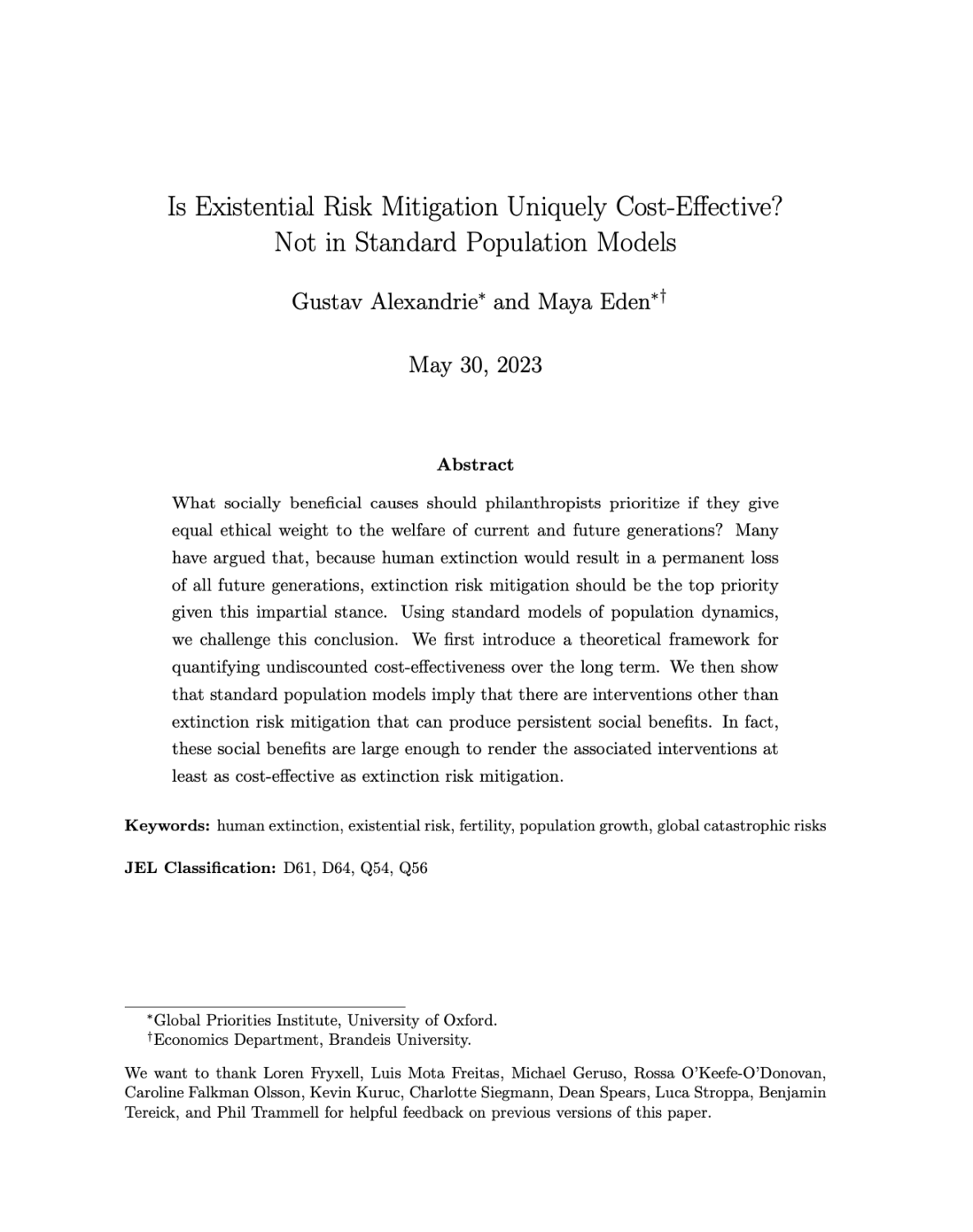Is Existential Risk Mitigation Uniquely Cost-Effective? Not in Standard Population Models
Gustav Alexandrie (Global Priorities Institute, University of Oxford) and Maya Eden (Brandeis University)
GPI Working Paper No. 5-2023
What socially beneficial causes should philanthropists prioritize if they give equal ethical weight to the welfare of current and future generations? Many have argued that, because human extinction would result in a permanent loss of all future generations, extinction risk mitigation should be the top priority given this impartial stance. Using standard models of population dynamics, we challenge this conclusion. We first introduce a theoretical framework for quantifying undiscounted cost-effectiveness over the long term. We then show that standard population models imply that there are interventions other than extinction risk mitigation that can produce persistent social benefits. In fact, these social benefits are large enough to render the associated interventions at least as cost-effective as extinction risk mitigation.
Other working papers
Maximal cluelessness – Andreas Mogensen (Global Priorities Institute, Oxford University)
I argue that many of the priority rankings that have been proposed by effective altruists seem to be in tension with apparently reasonable assumptions about the rational pursuit of our aims in the face of uncertainty. The particular issue on which I focus arises from recognition of the overwhelming importance…
Longtermist political philosophy: An agenda for future research – Jacob Barrett (Global Priorities Institute, University of Oxford) and Andreas T. Schmidt (University of Groningen)
We set out longtermist political philosophy as a research field. First, we argue that the standard case for longtermism is more robust when applied to institutions than to individual action. This motivates “institutional longtermism”: when building or shaping institutions, positively affecting the value of the long-term future is a key moral priority. Second, we briefly distinguish approaches to pursuing longtermist institutional reform along two dimensions: such approaches may be more targeted or more broad, and more urgent or more patient.
Meaning, medicine and merit – Andreas Mogensen (Global Priorities Institute, Oxford University)
Given the inevitability of scarcity, should public institutions ration healthcare resources so as to prioritize those who contribute more to society? Intuitively, we may feel that this would be somehow inegalitarian. I argue that the egalitarian objection to prioritizing treatment on the basis of patients’ usefulness to others is best thought…

